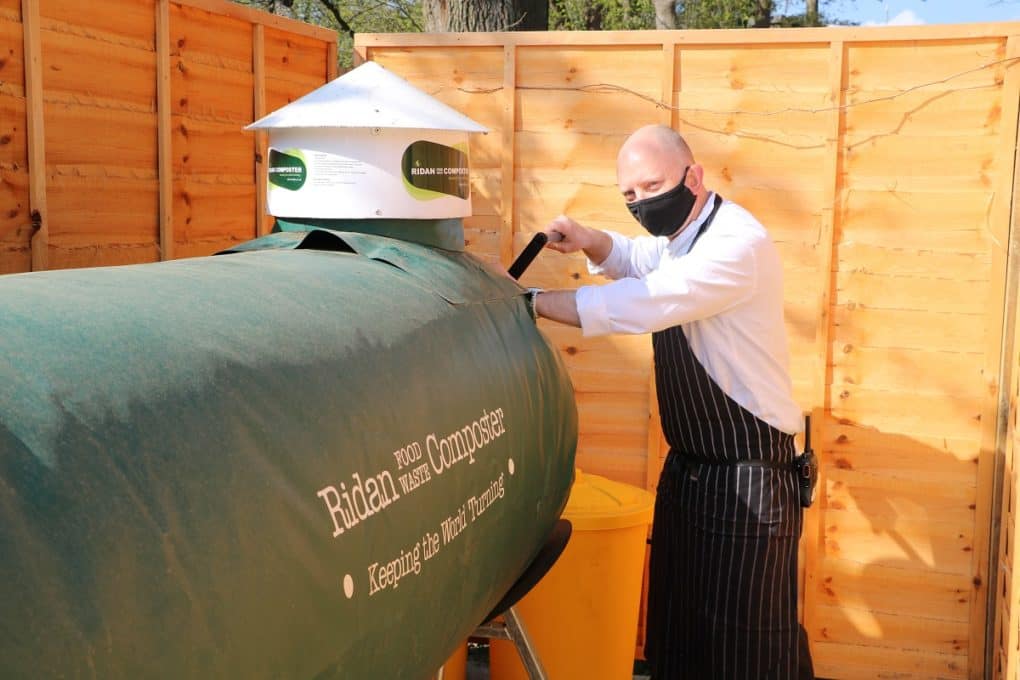

As part of Hever Castle’s bid to be more sustainable, the gardening and catering team have been working together to cut down on food waste on the estate.
General Manager Ian Goodwin, Chef Les Woolven and gardener Michael Holah visited The Horniman Museum in London to see how they were using their composter.
Food waste from the Restaurants (cooked food, raw meat, vegetable peelings and coffee grinds) is taken daily into a composter behind the Moat Restaurant and then emptied into a 400 litre food composter near the Biomass, opposite the Main Entrance.
A second composter will follow shortly at the entrance to the Pavilion Restaurant.
Chip bark is added to stop the food waste congealing and the mixture is turned twice a day by hand. It has to be above 50 degrees to allow aeration.
Grass cuttings, herbaceous prunings and annual weeds are also added to the compost mixture.
Hever Castle is the first Restaurant Associates Venues site to have its own food composter.
Composting is the process of things like food, cardboard, bread, egg shells, coffee and grass clippings breaking down and turning into soil. It does not need lots of equipment or much education in order to do.
Food waste costs restaurants across the country £682 million each year with 199,100 tonnes of food waste.
Ian says that food waste would have previously been going in the general waste and then onto landfill. He did a food waste audit and discovered that back in October 2019 (a busy half term week) the Restaurants were throwing away up to 140 litres of waste a day which included preparation waste, plate waste and over production waste. This has helped review production levels.
The food waste once it is added to the composter turns to compost within a week and is ready to use on the 125 acre gardens in a month.
Eventually there will be enough compost generated that the gardening team will not need to buy bagged compost.
Visitors can start their own composter in their garden by adding leaves, grass clippings, tea bags, coffee grounds, fruit and egg shells (nothing cooked) with an equal mix of greens and browns to a compost bin or pile.
Compost will be produced in as little as three months.
Book your visit to Hever Castle & Gardens.
Within the grounds of the Hever Castle Estate, there are two opportunities for you to stay the night with us.
Hever Castle has played host to many important events and celebrations for over 600 years. In 1903 when William Waldorf Astor set about restoring Hever Castle to its former glory, he added the Astor Wing, to accommodate his family and guests, before creating a lake and the spectacular Italian Garden to house his impressive collection of ancient Greek and Roman statuary.
There are multiple places to eat & drink across the Hever Castle Estate. Select between the Castle & Gardens and Golf Club below to discover more.
Set in the mature grounds of the Hever Castle Estate, Hever Castle Golf Club is a 27 hole Kent golf course that will encourage and inspire all golf enthusiasts.
Set in the mature grounds of the Hever Castle Estate, the Wellbeing Centre consists of five smart treatment rooms.